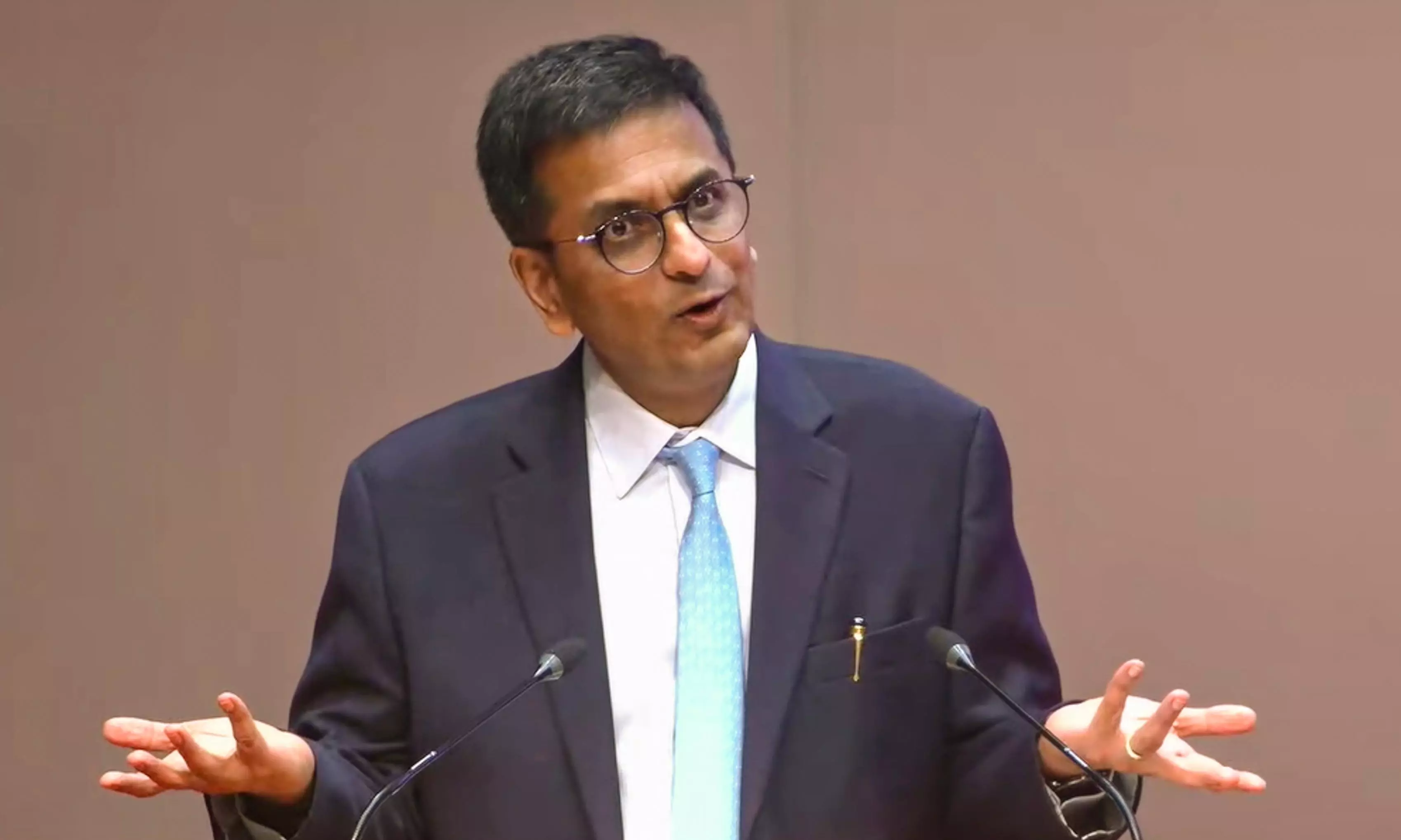
AI can aid but not replace human judgment: Ex-CJI Chandrachud

Mumbai, Feb 27 (PTI) Even though virtual courts improve accessibility, it has raised concerns about fair trial and there must be a balance between innovation and judicial integrity, former Chief Justice of India DY Chandrachud said here on Thursday.
The legal framework must adapt to emerging digital realities ensuring governance that is fair, flexible and future ready, he asserted.
Asserting that artificial intelligence (AI) was transforming case management, making legal processes faster and more efficient, the former CJI said, "But recent incidents like an attorney facing sanction for using AI generated fake case citations proves that while machines can assist, they cannot replace human judgment." Speaking at a conference organised by Welingkar Institute of Management, he said, "Virtual courts have improved accessibility but also raise concern about fair trial and data security. As we embrace these advances we must balance innovation with judicial integrity. Efficiency means nothing without fairness, accountability and trust." The former chief justice stated that affirmative action policies are crucial in promoting diversity and addressing historical injustice.
"Marginalised groups such as Scheduled Castes and Scheduled Tribes, women, minorities face structural barriers that limit access to education, employment and leadership roles. For true progress we must recognise that equity requires ensuring that everyone has support and access needed to compete on a level playing field," he said.
The digital revolution has redefined our existence, but has sown "new seeds to threaten us collectively", he said, adding "our own creation threatens our future".
Chandrachud also labelled cyber fraud as a well organised industry with "best tools of technology" as well as "lethal combination of human trafficking torture and exploitation".
"Quantum computing possesses previously unheard of cyber dangers because it has the ability to crack existing inscription techniques. This technology has the potential to redefine digital privacy, jeopardise critical government data and upend international financial institutions without guardrails," he said.
"Without a proactive and ethical legal framework we run the prospect of a technological arms race, in which a small number of countries and businesses control global power," Chandrachud said, adding that rise of digital currency and blockchain technology has added new complexity to legal landscape.
Innovation and technology must be balanced by frameworks of governance which stays ahead of the curve, he asserted.
"A well structured legal framework is the backbone of a thriving economy and innovation. We risk becoming the modern version of Draco (first legislator of Athens in ancient Greece who replaced the system of oral law and blood feud with the Draconian constitution) unless we create an equitable legal framework," Chandrachud stated.
"The challenge is clear. We need a smart legal framework that protects users without killing innovations. This requires enacting clear regulation for AI accountability and strengthening cyber security laws to combat digital fraud," Chandrachud opined.
He said technological advancement and shifting societal aspiration are today rapidly changing and reshaping industry and education.
Education and industry must work together from the drawing board to ensure students are equipped with real world skills before they enter the workforce, the former CJI said.
The global footprint of our age is in a state of economic, financial and political flux, he said.
The surge of the global economy is tampered with as nations turn inwards, confront the climate crisis and witness regional conflicts on an unprecedented scale, whether it is Palestine, Ukraine or the Congo, the former CJI said.
"As a global community, we survive on hope amidst cynicism, on peace amidst zones of conflict, faith in survival of our planets amidst concerns for climate change and continually spur our efforts to bring the benefit of technology amidst dangers to cyber security," he added. PTI

